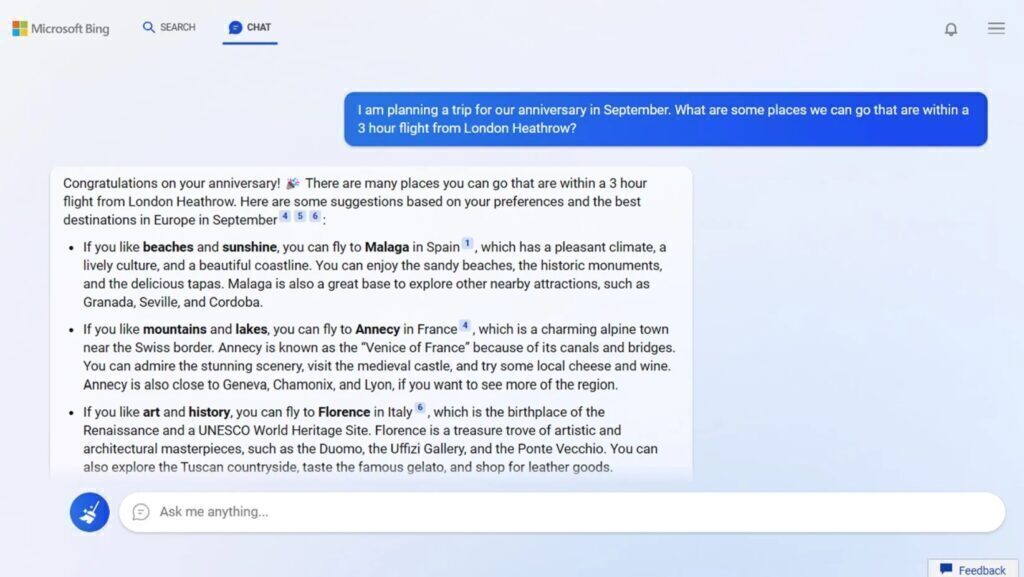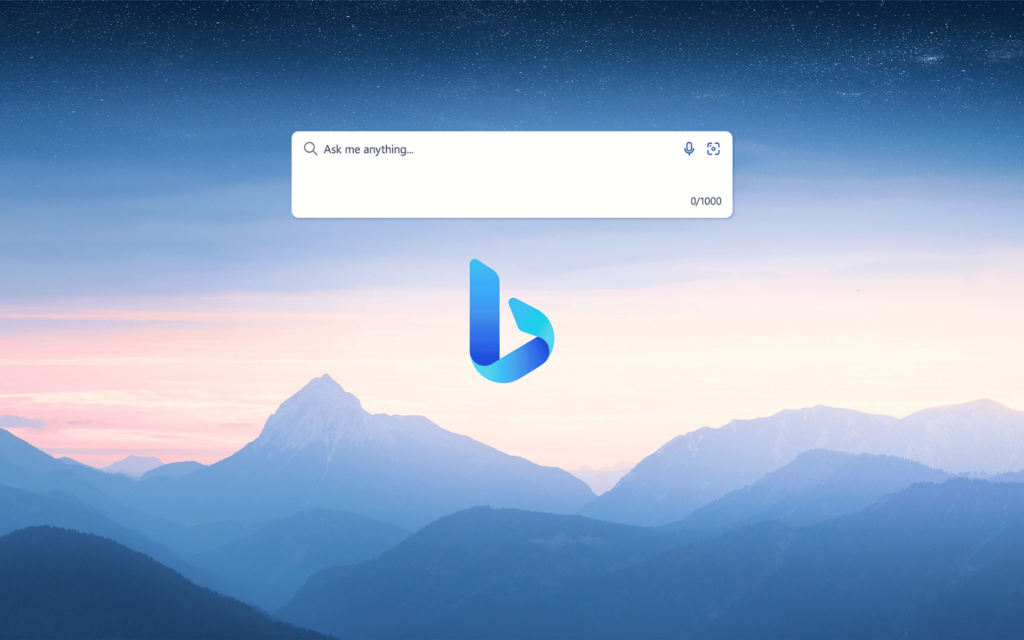‘If you can’t beat ’em, integrate their competition’ seemed to be Microsoft’s take on the proverb when the tech giant announced plans to use OpenAI-powered tools to improve its search engine and web browser, Bing and Edge.
On Tuesday, at the company’s Washington HQ, Microsoft’s CEO Satya Nadella remarked, “this technology is going to reshape pretty much every software category.”
We’re glad to see he’s keeping expectations low.
Bing and ChatGPT sitting in a tree

The revamped Bing search engine will use a different, more advanced OpenAI language model than the GPT-3 model used in the popular ChatGPT bot. Bing users around the world will (eventually) be able to switch between chat and search modes or even have the bot write emails or plan a holiday for them.
The company’s Edge browser will integrate the new AI-based Bing which can summarise web pages or respond to questions and queries as if you were asking a real person. Well, that’s the idea anyway. The answers it provides will also include the sources the bot used, which should presumably help prevent the spreading of misinformation. We’re sure someone will still find a way to make that happen.
Microsoft’s announcement came a few hours after Google disregarded its schedule to take the wraps off its AI-powered platform, called Bard, ahead of its Wednesday event. Anything to beat Microsoft to the punch, ‘ey?
This language model integration follows the further integration of DALL-E, an AI-powered image generation platform also from OpenAI, into Bing and Edge in October last year. If it sounds like Microsoft is playing favourites with OpenAI, that’s because it is. But that makes sense given the multi-billion dollar investment Microsoft threw at the startup in January this year.
The new AI-powered Bing is currently only available to a limited number of users but Microsoft said it would “scale the preview to millions in the coming weeks,” with a mobile preview in the works as well.
This could well be what Edge and Bing need and could see millions switching over to Microsoft’s platform. Or it’ll only really be noticed by the four or so people that use Bing beyond downloading and installing a different browser.




